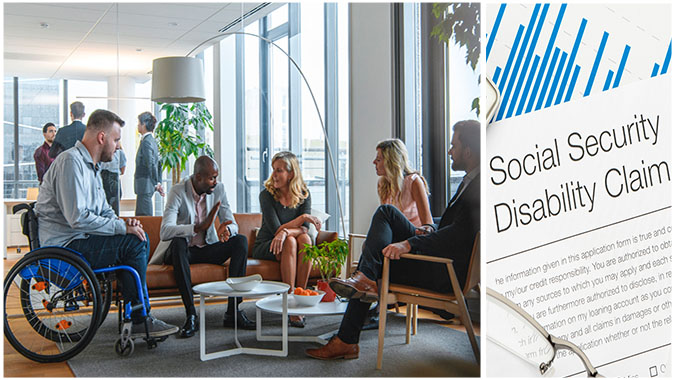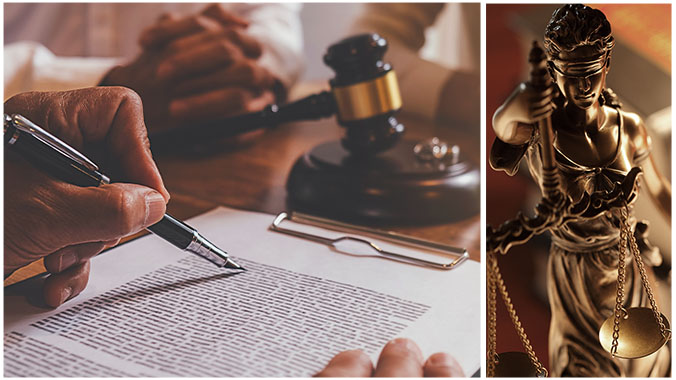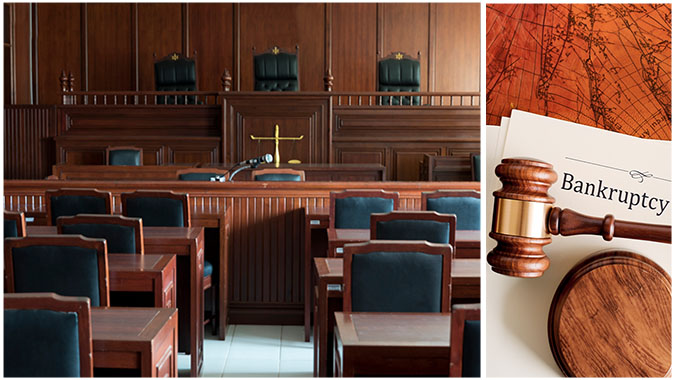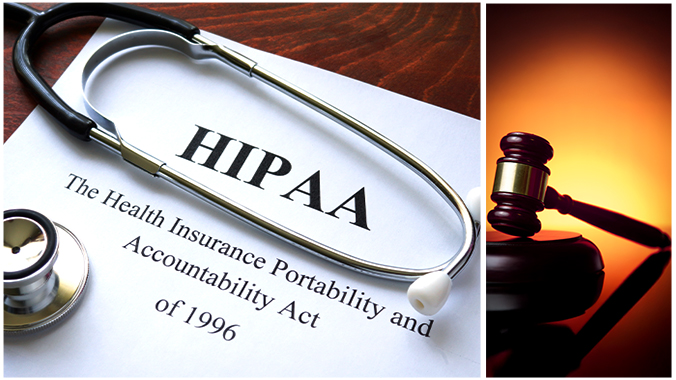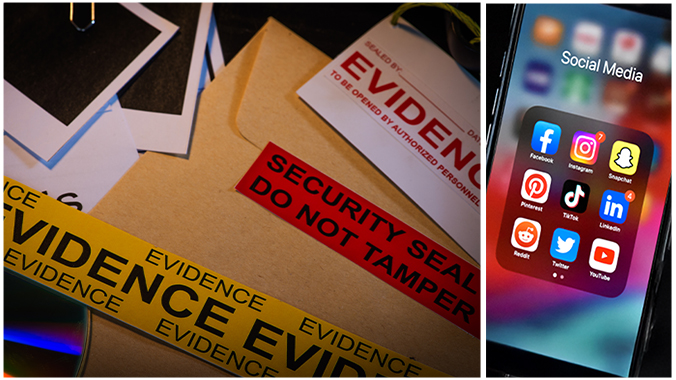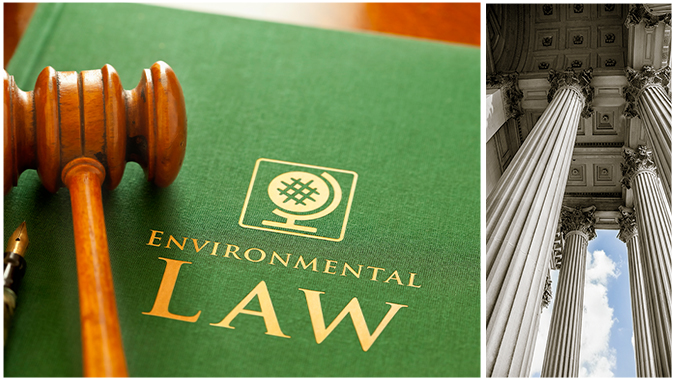Arbitration: From contract to enforcement and everything in between



On-Demand: August 23, 2023
Subscribe to Federal Bar Association CLE Pass...
Co-Sponsored by myLawCLE
Get this course, plus over 1,000+ of live webinars.
Learn More
MCLE Credit Information:
Select Your State Below to View CLE Credit Information
Tuition: $195.00
Training 5 or more people?
Sign-up for a law firm subscription plan and each attorney in the firm receives free access to all CLE Programs
Program Summary
Discover the world of arbitration in this comprehensive webinar. Explore contract interpretation, the process of filing claims, preliminary hearings, and best practices for presenting evidence. Learn about award types, confirming and enforcing awards, recent case law, and the importance of understanding the Federal Arbitration Act. Whether you're an attorney, arbitrator, or interested in dispute resolution, join us for valuable insights.
This course is co-sponsored with myLawCLE.
Key topics to be discussed:
- The Contract
- Getting to Arbitration
- Preliminary Hearing
- Evidentiary Hearing
- Post-Hearing & Award
- Confirming, Enforcing and Vacating an Award
- Recent Case Law
Date / Time: August 23, 2023
![]() Closed-captioning available
Closed-captioning available
Speakers
 Ronald C. Dresnick | Kluger Kaplan
Ronald C. Dresnick | Kluger Kaplan
Attorney, Judge, Arbitrator, Mediator, Educator, Consultant
March 1996 through December 2014 – Circuit Court Judge Miami Dade County, Florida. Assigned the majority of the 18+ years on the Circuit Court Bench to the General Jurisdiction Division trying civil cases including among others: breach of contract, construction, medical malpractice, legal malpractice, commercial and residential mortgage foreclosures, corporate dissolutions, etc.
1971 through 1996 – Practice of law including: criminal, commercial, aviation matters, etc. 2015-present: active litigation practice including probate, construction, complex commercial and business matters, expert witness on attorney’s fees and Florida law, litigation consultation including motion practice, mock trial and jury selection.
Commercial Experience
Adjudicated contract disputes, purchase and sale agreements, corporate derivative actions, corporate and partnership dissolution, business terminations, joint ventures, real estate transactions, multi-party investment agreements, first- and third-party insurance claims, subrogation, indemnification, claims for accounting, commercial foreclosures, fraud, civil theft, fraudulent transactions, fraudulent misrepresentation, negligent misrepresentation, breach of manufacturing and distribution agreements, claims relating to purchase and sale of airplanes, boats, franchises, businesses, buildings, hotels, condominiums (entire projects and individual units) manufacturing equipment; secured transactions, leases, and complex multiparty business dissolutions.
Construction Experience
Adjudicated a $44Milllion claim involving Port of Miami channel dredging; disputes related to construction of facilities at the Miami Dade County Airport, personal injury claim related to escalator construction at the Miami Dade County Airport; fire damage claims, hurricane damage claims, flood claims, mold claims, claims related to highway and road construction, paving and drainage; cable installation; code compliance, framing, drywall, stucco, plastering, roofing, painting, plumbing, air-conditioning, elevator installation; insurance claims, performance and surety bond claims, subrogation, indemnity; construction defects and delay. Adjudicated contractual disputes involving change orders, claims of fraud, fraud in the inducement, lost profits, breach, specific performance, liquidated damages, punitive damages, special damages, consequential damages, and attorney’s fees.
Teaching
- 1996- present University of Miami School of Law Evidence, Constitutional Law, and litigation skills
- 2004-2007 St. Thomas School of Law, Evidence
Alternative Dispute Resolution Experience
2015 – Present: Appointed to preside over numerous arbitrations as a panel member for the AAA-ICDR; Commercial panel; and Employment panel. Experienced in banking, financial services & foreclosure matters, commercial & contractual matters. Regularly serve as a mediator in both federal and state court cases.
Recent Publications & Speaking Engagements
Frequent lecturer for Dade County Bar Association and the Inns Of Court on evidence, foreclosure law, and trial skills. In 2022 co produced an in-person CLE program in Miami to which 7,000 judges and attorneys from throughout the state applied to attend.
 Angela Romero-Valedón | American Arbitration Association
Angela Romero-Valedón | American Arbitration Association
Angela Romero-Valedón, Esq. joined the American Arbitration Association in 2016 as Director of ADR Services. She has been the Commercial Vice President of the Miami Regional office since November 2022. Overseeing the Florida, Puerto Rico and the US Virgin Islands’ commercial arbitration matters and mediations, she is also responsible for regional outreach and advancing the use of ADR services. She is a Florida licensed attorney and Florida Supreme Court certified circuit court mediator.
 Jay G. Safer | Dunnington Bartholow & Miller LLP
Jay G. Safer | Dunnington Bartholow & Miller LLP
Jay Safer is a litigation, arbitration, mediation, international, and corporate group partner with the New York City law firm Dunnington Bartholow & Miller LLP.
He is an Attorney, Arbitrator, Consultant, and Educator.
Jay has extensive experience as a litigator, single and panel arbitrator including as Chair, and representing clients. He has managed and handled complex U.S. and International litigation, arbitration, and mediation on a wide range of disputes, cases, and consultation. including: complex commercial and business matters, court hearings on jurisdiction and compelling and opposing arbitration, application of the New York Convention and Federal Arbitration Act to enforce and confirm international arbitration awards, enforcement of U.S. arbitration awards, enforcement of foreign judgments, contract claims and breach of contract, mergers and acquisitions, sale and purchase claims, supplier purchaser disputes, franchise disagreements, antitrust, securities, broker dealer relationships, corporate investigations, forgery, fraud, RICO, qui tam, FCPA, labor and employment including termination, banking and financial transactions, lender and borrower defaults and liability, corporate governance, technology, privacy, insurance, construction, real estate, media, defamation, product liability, health care, professional malpractice, ethics, telecommunications, energy, environment, breach of fiduciary duty, partnership, shareholders, entertainment, privacy, trade secrets litigation and protection, trusts and estates, corporate governance, constitutional and regulatory issues, and class actions. As an arbitrator, he is on the Roster of Neutrals for the AAA and ICDR.
He has represented United States and foreign clients in litigation and arbitration in the U.S. and abroad, including a foreign government and involving application of U.S. and foreign law.
He has served as a Lecturer at Law and Adjunct Professor at Columbia University Law School and Fordham Law School teaching American Litigation Practice and Management of Litigation for the International Lawyer, including arbitration and mediation to foreign lawyers seeking their LLM.
He has many years of speaking engagements on many subjects related to litigation, arbitration, and mediation. He has presented programs with judges, arbitrators, and attorneys on international and U.S. litigation, arbitration, ADR and trial and evidentiary issues at worldwide conferences, webinars, and court and bar association programs. He has taught international arbitration to CIArb Fellow applicants. He has authored and contributed to articles and publications on litigation and arbitration.
Agenda
I. The Contract. Arbitration provisions are contractual in nature, the construction of these provisions and the contracts in which they appear are matters of contract interpretation. See Seifert v. U. S. Home Corp., 750 So. 2d 633, 636 (Fla. 1999). “[T]he determination of whether an arbitration clause requires arbitration of a particular dispute necessarily ‘rests on the intent of the parties.’” Id. at 637 (citation omitted). “[T]he meaning of language is a factual question [;] the general rule is that interpretation of a document is a question of law rather than of fact.” Peacock Construction v. Modern Air-Conditioning Inc., 353 So. 2d 840, 842 (Fla. 1977). “If an issue of contract interpretation concerns the intention of parties, that intention may be determined from the written contract, as a matter of law, when the nature of the transaction lends itself to judicial interpretation.” Id.; see also Royal Continental Hotels v. Broward Vending Inc., 404 So. 2d 782, 783-84 (Fla. 4th DCA 1981). Thus, it is the contract and the terms of the contract which will control the arbitration, the scope of the arbitration and the arbitrability of various claims. For that reason it is important at the drafting stage of the contract between the parties for the drafting attorney to be aware of his/her clients’ needs. The AAA has developed an online tool “clause builder” which assists attorneys in the drafting of specific arbitration clauses. It allows for copying and pasting specific clauses into their contracts including among others | 1:00pm – 1:15pm
- Number of arbitrators (method of choosing arbitrators)
- Arbitrators Qualifications
- Locale Provisions
- Governing Law
- Discovery
- Documents-Only Hearing
- Duration of Arbitration Proceedings
- Remedies
- Assessment of Forum Fees and Attorneys’ Fees
- Opinion Accompanying the Award
- Confidentiality
- Non-Payment of Arbitration Expenses
- Appeal
II. Getting to arbitration | 1:15pm – 1:30pm
- How and when to file a claim
- The administration call after filing claim
- Interacting with case manager
- Selecting arbitrator
III. Preliminary hearing | 1:30pm – 1:45pm
- This will actually be the first encounter between the parties and the arbitrator. It is a wise decision for the parties to meet and confer prior to the actual preliminary hearing to discuss the issues that are expected to be raised such as dates for significant events (final evidentiary hearing, discovery (if any and what type) cutoff date, what will be provided in the nature of discovery, need for definite statement of claims and defenses, counterclaim if any, expedited procedures if applicable, ruling based on document submission only if applicable , locale of hearing, virtual versus in person hearing, arbitrability and jurisdiction, governing law, governing arbitration rules, direct exchange, attorney’s fees and costs, cyber security issues, confidentiality, exchange of documents, responses, dispositive motions, witness identification, exhibits and marking exhibits, prehearing briefs, post hearing briefs, closing arguments, type of award).
- Dispositive Motions
- Subpoenas
IV. Evidentiary Hearing | 1:45pm – 2:00pm
- Best Practices for presentation of evidence
Break | 2:00pm – 2:10pm
V. Post-Hearing & Award | 2:10pm – 2:20pm
- Post-Hearing
- Award
- Interim vs. Final
- Types of Awards – Standard, Reasoned, Findings of facts and conclusions of law.
VI. Confirming, Enforcing and Vacating an Award. Arbitrations are designed to provide expediency and economy to the resolution of disputes. Arbitrations are not litigation in the classic definition, and as discussed above they are controlled by the intent of the parties which included arbitration as the means to resolve a dispute concerning the contract. When done properly and arbitration can save disputing parties substantial time and money. The United States Arbitration Act (Federal Arbitration Act or FAA) 9 USC ch. 1 applies in both federal and state courts and provides for contract based compulsory and binding arbitration. The act provides for an award as opposed to a judgment. In order to be enforceable, the award must be confirmed by a court by the entry of a judgment. An award is subject to vacatur (FAA, 9 U.S.C.§10(a)) if | 2:20pm – 2:30pm
- It is procured by corruption, fraud or undue means
- Evident partiality or corruption in the arbitrators
- Arbitrators were guilty of misconduct (refusing to postpone a hearing for good cause or refusing to consider material in pertinent evidence
- The arbitrators exceeded their powers, or so imperfectly executed them that a final and definite award on the subject matter was not made
See, AIC v Hidroelectrica Santa Rita 11th Cir. holding that under the New York Convention where the arbitration is seated in the United States or where United States law governs, the FAA provides grounds for vacatur, one of which is the arbitral court exceeded their powers, one of the grounds set out under 9 U.S.C. §10 (a) (4). - New York Convention-Enforcement and Vacatur Proceedings under New York Convention – how they may differ from FAA and state court rules and proceedings and the need for personal jurisdiction over defendants in US courts.
- Other defenses sometimes raised to overturn awards: wholly irrational, manifest disregard of law.
VII. Recent Case Law | 2:30pm – 2:40pm
- Coinbase v Bielski US S. Ct. 2023. District Court must stay its proceedings while an interrogatory appeal on issue of arbitrability is ongoing. In the appeal, including in the interrogatory appeal “divest the district court of its control over those aspects of the case involved in the appeal.” Griggs v. Provident Consumer Discount Co. 459 U.S. 56, 58, 103 S.Ct. 400, 74 L. Ed. 2d 225. This case was a result of the stalemate in selecting arbitrators. Under the new commercial rules, the AAA can limit strikes employed by the parties.
- Issue of impasse in choosing arbitrator Hotel 57 LLC v. Four Seasons Hotel. S.D.N.Y. ordered the parties to implement arbitration process as set out in their original agreement. The case is currently on appeal to 2nd Dist.
- US Supreme Court held plaintiff may use RICO act to enforce a foreign arbitral award in the United States provided plaintiff can demonstrate it suffered a “domestic injury”. Yegiazaryan v. Smagin RJR Nabisco v. European Community 579 United States 325 (2016) (6/22/23). RICO defendant’s activity devised to prevent enforcement of California court judgment confirming foreign arbitral award. This (an orbital award) was held to be an intangible injury. The New York Convention allows for prevailing parties in International arbitrations to have their awards enforced before the national courts in those jurisdictions which have ratified the New York convention.
- 11 circuit reversed Judge Scola’s decision in AIC v Hidroelectrica Santa Rita holding that a case under the New York Convention with the arbitration is seated in the United States or where United States law governs, the FAA provides grounds for vacatur, one of which is the arbitral court exceeded their powers, as set out under 9 U.S.C. §10 (a) (4)
More CLE Webinars
Trending CLE Webinars



















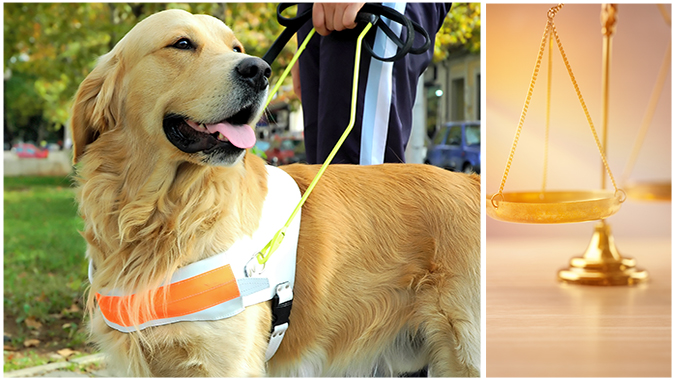



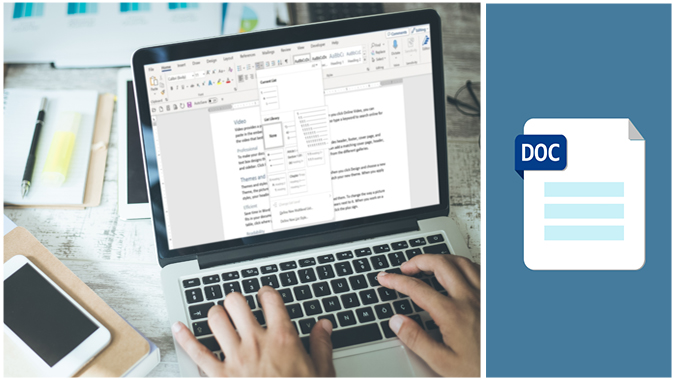



Upcoming CLE Webinars
![4th Annual Tax Rep Summit [4-Day Event]](https://federalbarcle.org/wp-content/uploads/2024/09/4th-Annual-Tax-Rep-Summit_myLawCLE.jpg)


